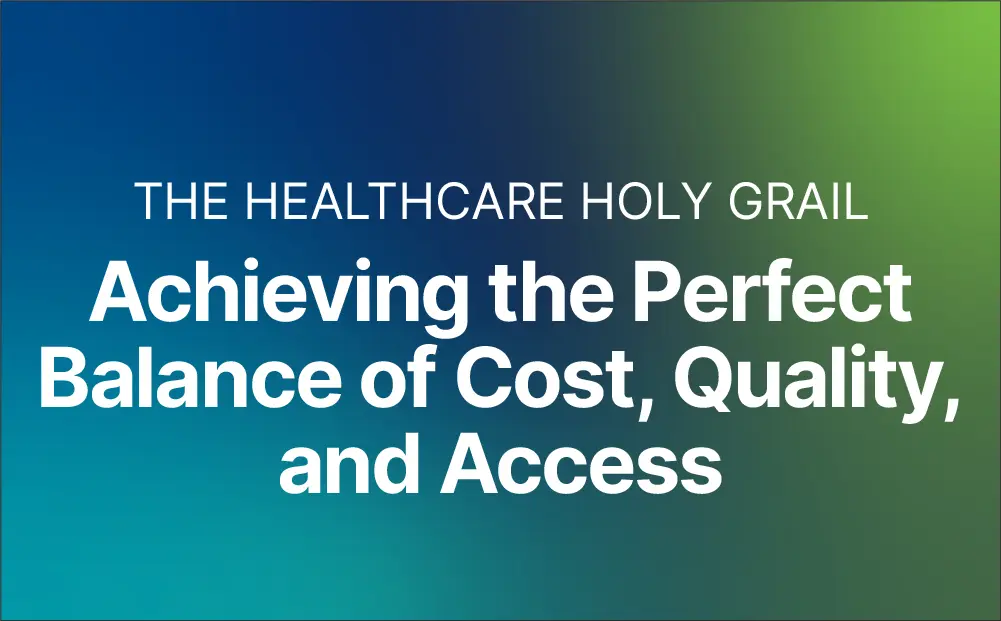
The Healthcare Holy Grail: Achieving the Perfect Balance of Cost, Quality, and Access
For years, employers and brokers have been on a relentless quest for the “Healthcare Holy Grail”—a health plan that offers affordability, broad access, and high-quality benefits. But in the industry’s response, there’s always been a catch: you can have two out of three, but never all three.
If you ask people what’s wrong with healthcare today, the answers typically fall into two categories: it’s too complicated, and it’s too expensive. The data backs this up. According to a 2024 employer health benefits survey conducted by Kaiser Health, the average premium for a family health plan has skyrocketed to $25,572 per year.1 This rising cost puts immense pressure on employers and employees struggling to keep up with healthcare expenses and brokers trying to find the right solutions to combat the rising cost.
So, how do we solve this? If unit cost × volume = total healthcare cost, then lowering costs requires strategic plan design. The key lies in smarter navigation, oversight, and virtual care. Here’s how:
1. Care Navigation: Building a Virtual Narrow Network with CareConnect
Care navigation also takes the complexity out of healthcare by providing members with a team of CareConnect Advocates to help them understand their benefits, research procedures, review medical bills, and more.
2. Pharmacy Benefit Oversight: Controlling Prescription Drug Costs with RightTurnRx
RightTurnRx provides four levels of pharmacy management and works in conjunction with PBMs and strategic partners to provide PBM contracting, clinical cost containment, alternate funding pathways, and retrospective performance audits.
3. Near-Site Clinics: Reducing Costs with Access2Day Health
Through a network of employer-sponsored, near-site clinics, Access2Day provides employees with zero-copay primary care, urgent care, and basic lab services—ensuring they get the care they need without financial or logistical hurdles.
Stop Loss Savings: An Added Bonus
By incorporating CareConnect, RightTurnRx, and Access2day, health plans unlock a powerful advantage—not just in cost savings but in the recognition they receive from stop-loss partners. These proven strategies significantly reduce unnecessary emergency room visits, hospitalizations, and overall healthcare and pharmacy utilization by emphasizing directed care and strategic Rx management. The result? Lower costs for routine care, preventative services, specialty pharmacy, and chronic conditions.
90 Degree Benefits clients implementing these programs have seen stop-loss cost savings ranging from 15% to 25%, proving that the right approach to care coordination and pharmacy management isn’t just effective—it’s transformative.
The New Reality: Cost Savings Without Compromise
By integrating these three strategies, employers and brokers can finally achieve the Healthcare Holy Grail—balancing cost, quality, and access in a way that was once thought impossible. This isn’t just about lowering costs; it’s about delivering better care, better access, and better financial outcomes for businesses and their employees.
Ready to make a turn for the better? Let’s build a smarter benefits strategy—one that works for everyone.
1 https://www.kff.org/report-section/ehbs-2024-section-1-cost-of-health-insurance/